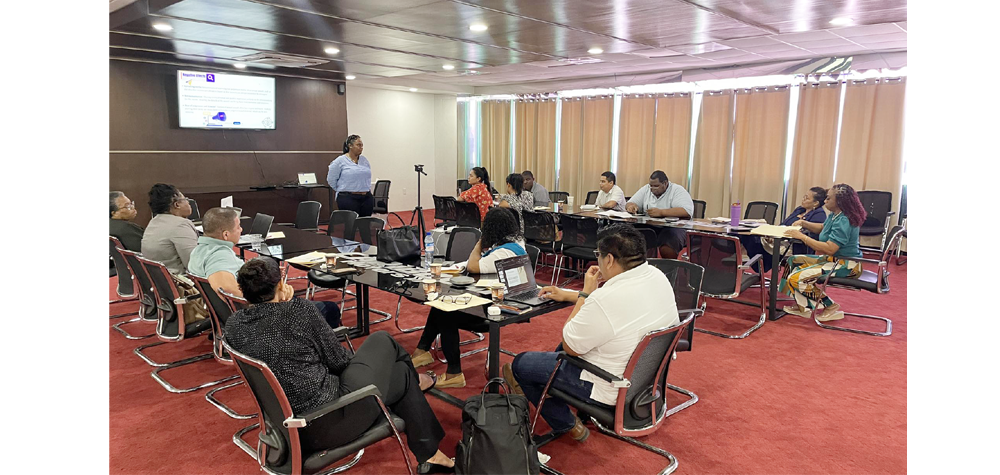by Kristen Ku
BELIZE CITY, Thurs. May 9, 2024
The National Commission of Families and Children (NCFC) organized a one-day workshop today, focusing on the “laws, legal restrictions, and sanctions surrounding reporting on minors and other groups.”
Held in Belize City, the event, which invited participation from over 30 media outlets, including newspapers and digital platforms, took over a month and a half to plan, ensuring that experts in various fields could share their knowledge and recommendations.
Presenters included Ganesha Smith, who addressed sexual abuse and human trafficking; Justice Antoinette Moore, who discussed media responsibilities regarding victims; Justice Dixon, who covered juvenile offenders in the media; Adele Ramos, who spoke on reporting practices concerning minors; and Christy Almeida, who discussed media portrayal of persons with disabilities.
According to Marcus August, the Information, Education, and Communication Officer for NCFC, the importance of such workshops is to continuously educate journalists on preventing re-victimization and minimizing the harm caused by media exposure.
“We would prefer to have the workshop every year now, because what we’ve noticed is that new enrollments or staff sometimes forget these things over a period of time. So, frequent re-education of this workshop would assist in preventing re-victimization,” he said.
He further added, “From a civilian point of view, I’ve seen instances where individuals are sharing on social media and not understanding the depth of the story, the angles of the story, how it affects the family, and the person that is involved with the story. Today has helped me so far to spread my knowledge to people that re-share certain things on social media.”
Amandala spoke with presenter Justice Moore, who commented on the critical nature of the workshop, especially given the recent tragic events involving children. She believes that journalists should be aware of what guidelines exist internationally and what domestic laws exist around restrictions and responsibilities they have in reporting cases involving children and other vulnerable persons.
While the discussions were fruitful, her suggestion for future workshops would be to include testimonies from survivors of crimes, particularly sexual offenses.
“It might not be easy to get persons who are willing to speak at this kind of workshop, but persons who have gone through it and who had their stories on TV or in the media, and have felt either re-victimized because of it or have felt that the reporting was unfair, I think it would be important to hear their voices,” she said.

